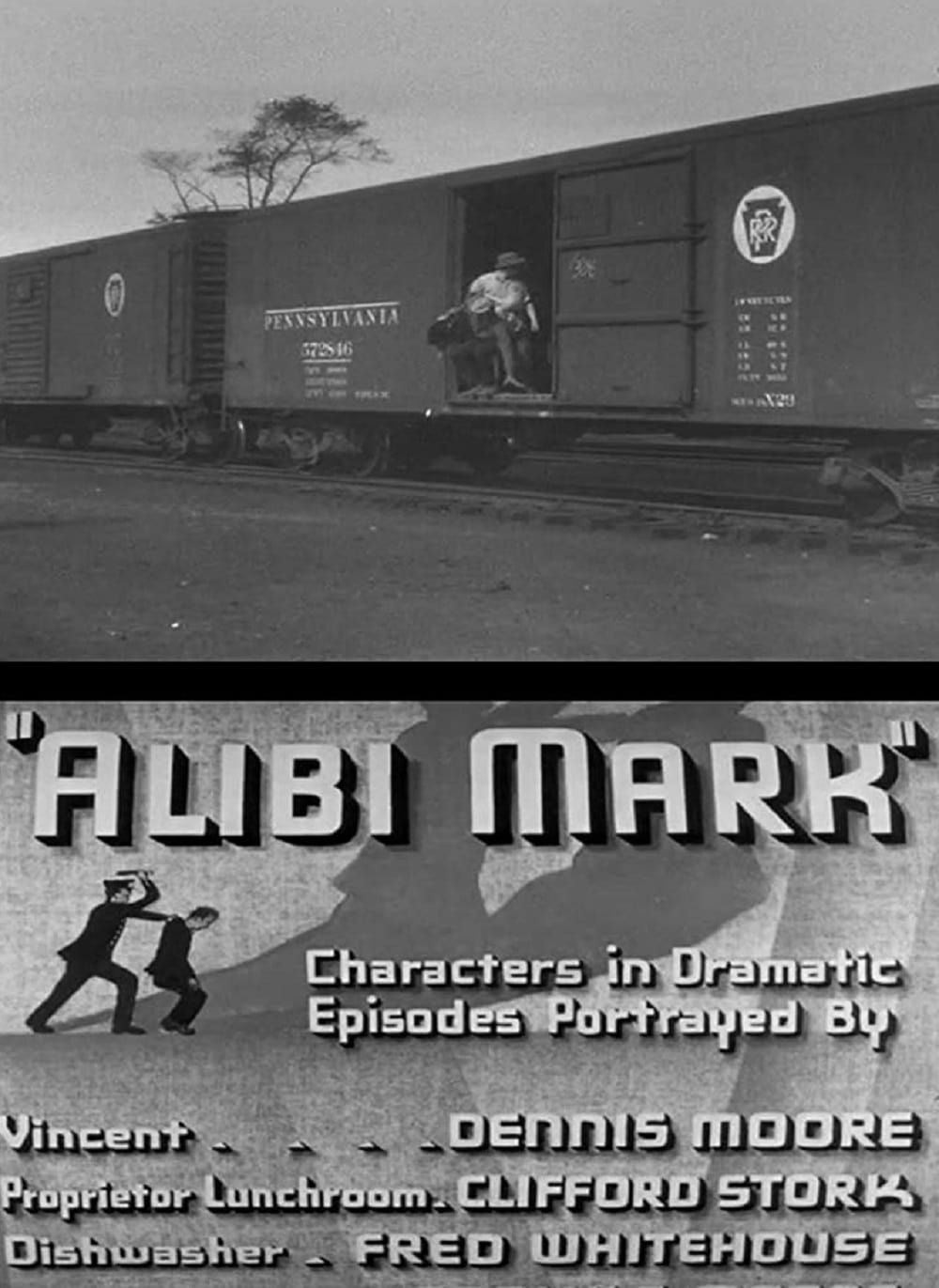
When an out-of-work Chicagoan travels west as a hobo on a freight train, he finds himself falsely accused of murder.
02 Oct Alibi Mark (1937)
Signs of Trauma, Film as Meal
Wow, what a strange film. My interest in these comments is in the qualities of introspection: where the viewer is placed in the narrative and how different layers of that stance are manipulated.
The CCC, as duly described in this film, was a sort of civilian army designed to counter the depression. Today, radial republicans would call it socialist or communist, or whatever label they adopt. It was one of several initiatives that quite literally kept the nation out of a fascist or communist future until WWII came along to provide employment. These ‘camps’ were tasked with infrastructure and wisely included the arts. Orson Welles’ group came out of one of these.
One of the most influential folding experiments in film is also from this era, ‘Phantom Empire’.
Apparently, CCC had a film group, which with a subsidised Warner Brothers effort produced some high quality shorts.
Folding: The staging has a famous newsman as the narrator on a framing device where he has to tell a story to the young men at one of these CCC camps to ‘earn his meal’. It is about hunger, meals, and ends with the hapless protocol-noir hero getting ‘the best meal of his life’.
The target audience of the in-film story and the film itself are the CCC ‘boys’, through a simple morality tale about the slipperiness of justice — and by implication how much better off they are in the camps. To run this home, at the end we are introduced to the actual fellow whose story we have just seen.
Another proto-noir trend is the confluence of detective roles: in the townspeople, the ‘newsman’ narrator (newsmen and police are conflated in this film era), and the twist that our real life guy is now a railroad ‘detective’.
Posted in 2022
Ted’s Evaluation — 2 of 3: Has some interesting elements.


No Comments